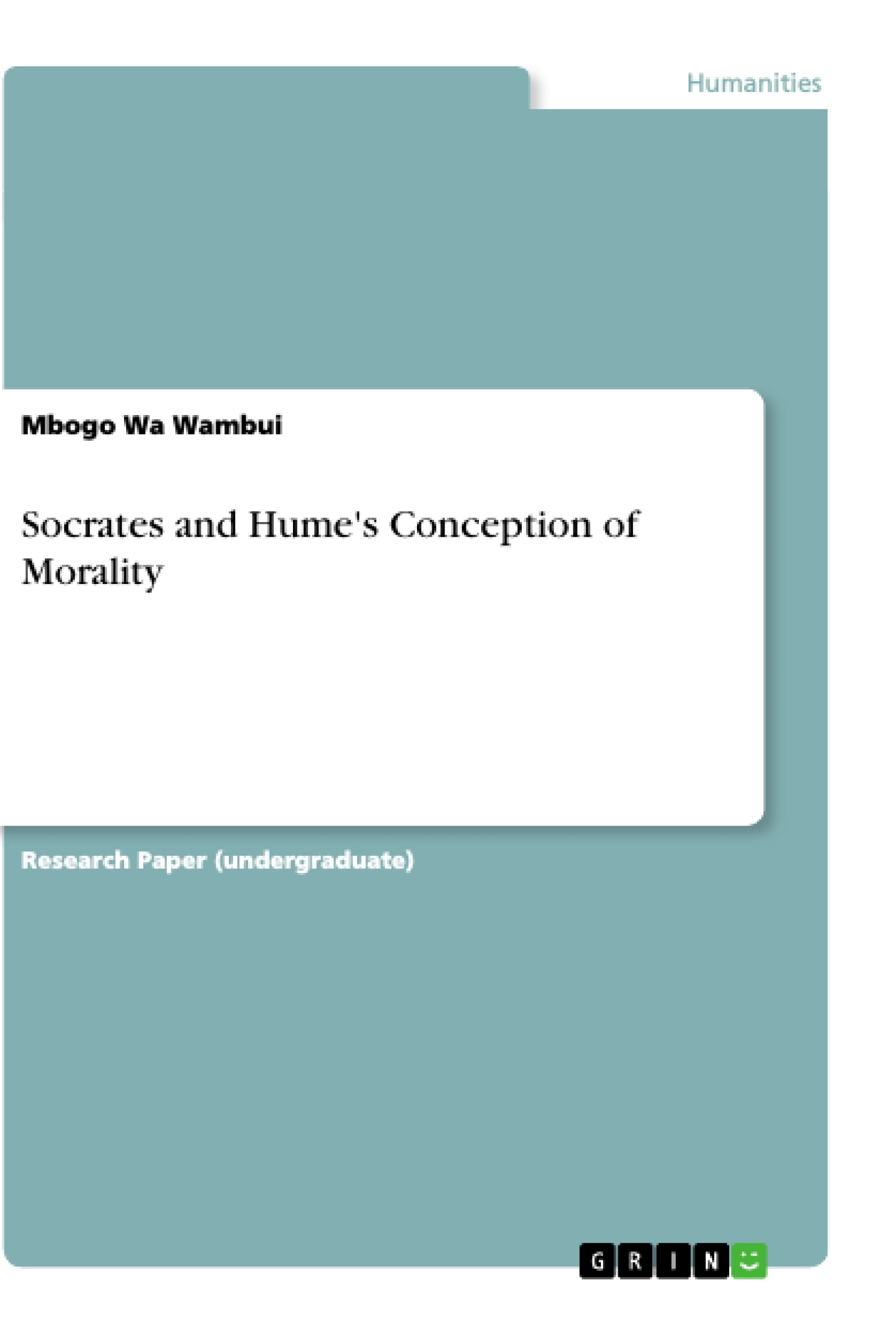Abstract or Introduction
In this paper, I set forth to explain the conceptions of morality by both Socrates and David Hume with the aim of bringing out the basis of their contrasting views on morality. In the second part, I will outline the implications of Hume’s account of morality on the moral sphere. I will begin with Socrates, then Hume in outlining their views.
Socrates, c.a 470-399 BC was an active philosopher in what is called the anthropocentric period . That is 450-400 BC. During this period the major themes in Philosophy focused on the ‘internal’, that is, knowledge and ethics. Born a poor man, a son of a stone cutter, Socrates, is said to have become a stone mason but left his job in order to find out about life, about himself and about goodness.
David Hume on the other hand was born in Edinburgh in 1711 AD. He lived during the Enlightenment. In this era, the major philosophical concerns were whether knowledge is attainable through reason or through experience/sense perception. That is, rationalism and empiricist schools of thought.
- Quote paper
- Mbogo Wa Wambui (Author), 2010, Socrates and Hume's Conception of Morality, Munich, GRIN Verlag, https://www.grin.com/document/703504
Publish now - it's free






















Comments